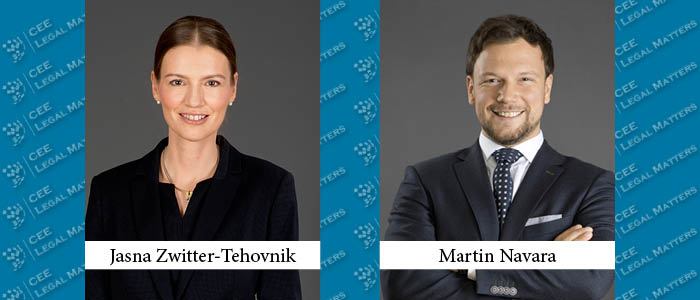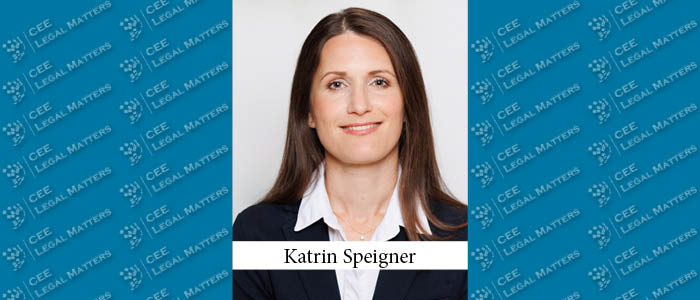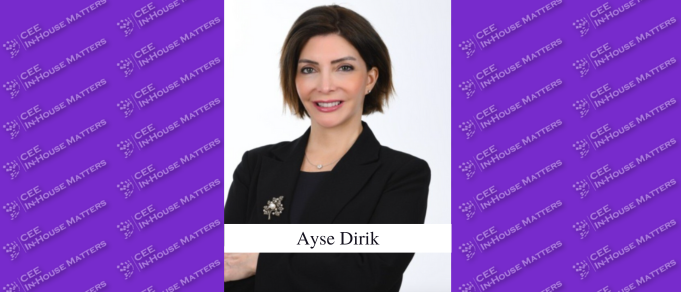Wolf Theiss, working alongside Clifford Chance, has advised Cellnex Telecom on the EUR 803 million sale of its Austrian telecommunications tower assets to a consortium comprising Vauban Infrastructure Partners, EDF Invest, and MEAG. Schoenherr, working with the Paris and London offices of Hogan Lovells, advised the buyers.
Schoenherr Advises EBG MedAustron on Expansion of MedAustron Cancer Treatment and Research Centre in Wiener Neustadt
Schoenherr has advised EBG MedAustron on the expansion of the MedAustron cancer treatment and research center in Wiener Neustadt.
Austria: Blood, Tissue, Cells and More – New EU Regulation on Substances of Human Origin
In Austria, almost 1,000 units of stored blood are needed every day; in Germany, it is around 15,000 units. Blood is an important emergency medication in the event of accidents, childbirth, surgeries or serious illnesses. It has a shelf life of only 42 days and cannot be produced artificially.
Austria: Public-Private Partnership – Is This Model Becoming Obsolete?
Public-private partnerships (PPPs) offer a way to procure infrastructure and services that traditionally do not include private capital involvement with private finance participation. PPPs have been introduced as a general acknowledgment of the need to solve the infrastructure gap in many countries – especially in emerging market and developing economy (EMDE) countries. EMDE countries need to rely on private resources as a means of accelerating infrastructure development. Attractive for a high degree of flexibility in light of multiple variations across the globe regarding the scoping of a PPP, PPPs enable efficiency and high value for money.
Hule Bachmayr-Heyda Nordberg Advises ParityQC on Financing Round
Hule Bachmayr-Heyda Nordberg has advised ParityQC on a financing round with B & C Innovation Investments.
Fellner Wratzfeld & Partner Represents Vienna Health Fund Before Vienna Administrative Court
Fellner Wratzfeld & Partner has successfully represented the interests of Vienna Health Fund before the Vienna Administrative Court.
Schoenherr Advises on Austrotherm's EPS Insulation Business Acquisition Clearance
Schoenherr has advised Austrotherm GmbH on the merger control filings for the acquisition of the EPS insulation business unit of the Austrian insulation manufacturer Brucha.
Schoenherr and Griss & Partners Advise on Funke Works' Acquisition of Freyspiel
Schoenherr has advised Funke Works on its acquisition of Freyspiel from Sonja and Jakob Frey. Griss & Partners advised the sellers.
Martin Hanzl Promoted to Partner at EY Law
EY Law has Promoted Martin Hanzl to Partner in Austria.
Freshfields and Baker McKenzie Advise on Assa Abloy's Acquisition of Skidata
Freshfields Bruckhaus Deringer has advised Assa Abloy on the acquisition of Skidata from the Kudelski Group. Baker McKenzie, working with Hogan Lovells, Holding Redlich, and Lenz & Staehelin, advised the Kudelski Group.
Katrin Speigner Makes Partner at EY Law
EY Law has promoted Katrin Speigner to Partner in its Salzburg office.
Taylor Wessing Advises VakifBank International on Core Banking System Implementation
Taylor Wessing has advised VakifBank International on the implementation of a core banking system.
The Corner Office: Essential Checklist for Partner Departures
In The Corner Office, we ask Managing Partners at law firms across Central and Eastern Europe about their backgrounds, strategies, and responsibilities. As partner departures are inherent to the workings of any law firm, and likely demand clear strategies for navigating, this time around we asked: What are the three most important items on your checklist when a Partner leaves your firm?
Closing: Altor’s Acquisition of 80% Stake in Kommunalkredit Austria Now Closed
On July 17, 2024, Wolf Theiss announced that Altor’s acquisition of an 80% stake in Kommunalkredit Austria (as reported by CEE Legal Matters on February 10, 2023) is closed.
Austria: Can I Claim that My Product Is Climate Neutral?
In a recent judgment, the German Federal Court of Justice (BGH) held that the claim "climate neutral" is ambiguous and often misleading unless the advertisement itself explains its specific meaning. This sets a trend for Austria, where courts have traditionally followed the standards set by the BGH in relation to environmental advertising when assessing such claims under unfair competition law. On an EU level, the restrictions regarding claims about greenhouse gas emissions are becoming even stricter, leaving advertisers with much to consider before making claims such as "climate neutral".
Dorda Advises Onside Sports on Acquisition of SLFC
Dorda, working with Hamburg-based Goerg, has advised Onside Sports on its acquisition of SLFC.
Binder Groesswang and Baker McKenzie Advise on NKMS Holding's Acquisition of Gienanth Group Austrian and Czech Subsidiaries
Binder Groesswang has advised NKMS Holding on the acquisition of Austrian and Czech subsidiaries of the German-based Gienanth Group. Baker McKenzie advised Gienanth Group.
Wolf Theiss and Binder Groesswang Advise on Software AG's Restructuring and Sale of its Super iPaaS Business to IBM
Wolf Theiss, working with Simpson Thacher & Bartlett, Gorrissen Federspiel, and Hengeler Mueller, has advised Software AG on the carve-out and sale of its Super Integration Platform as a Service business to IBM. Binder Groesswang, working with Cravath, Swaine & Moore, advised IBM.

































